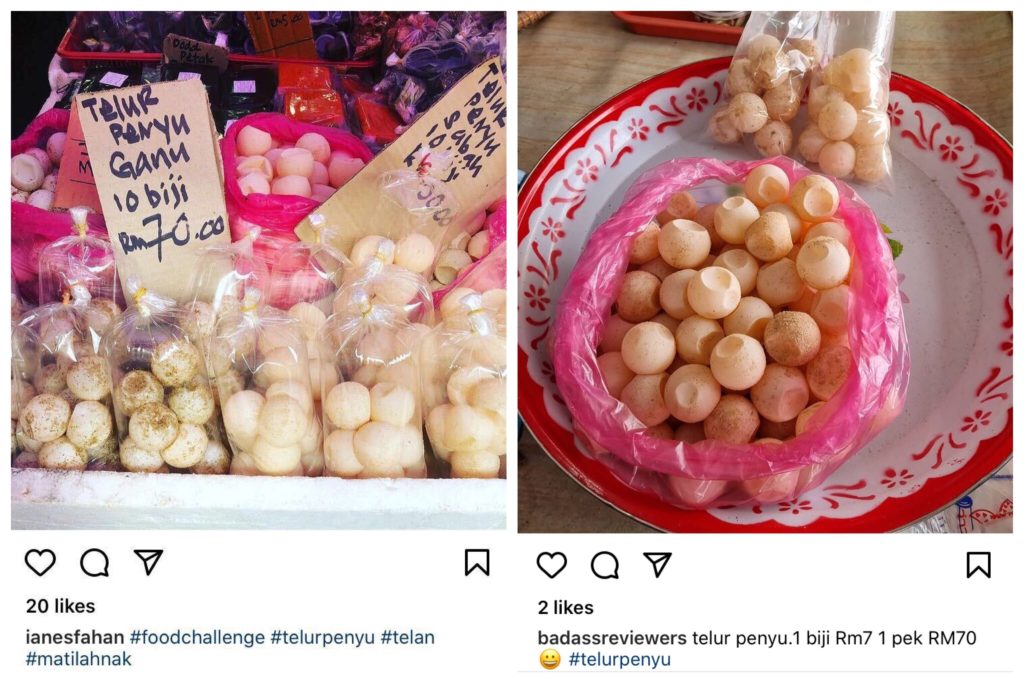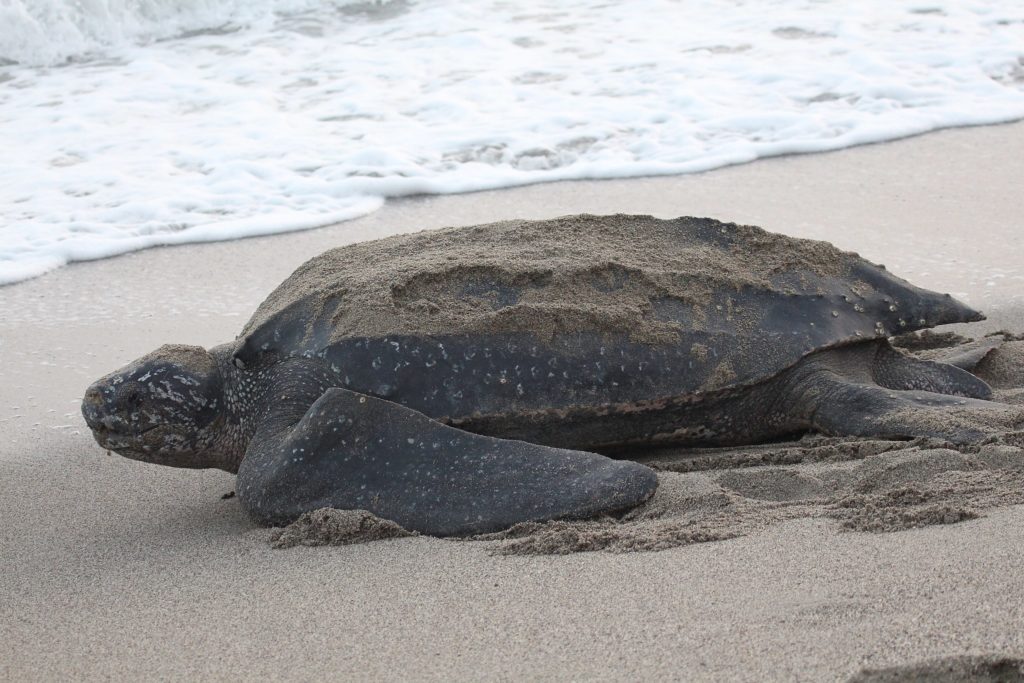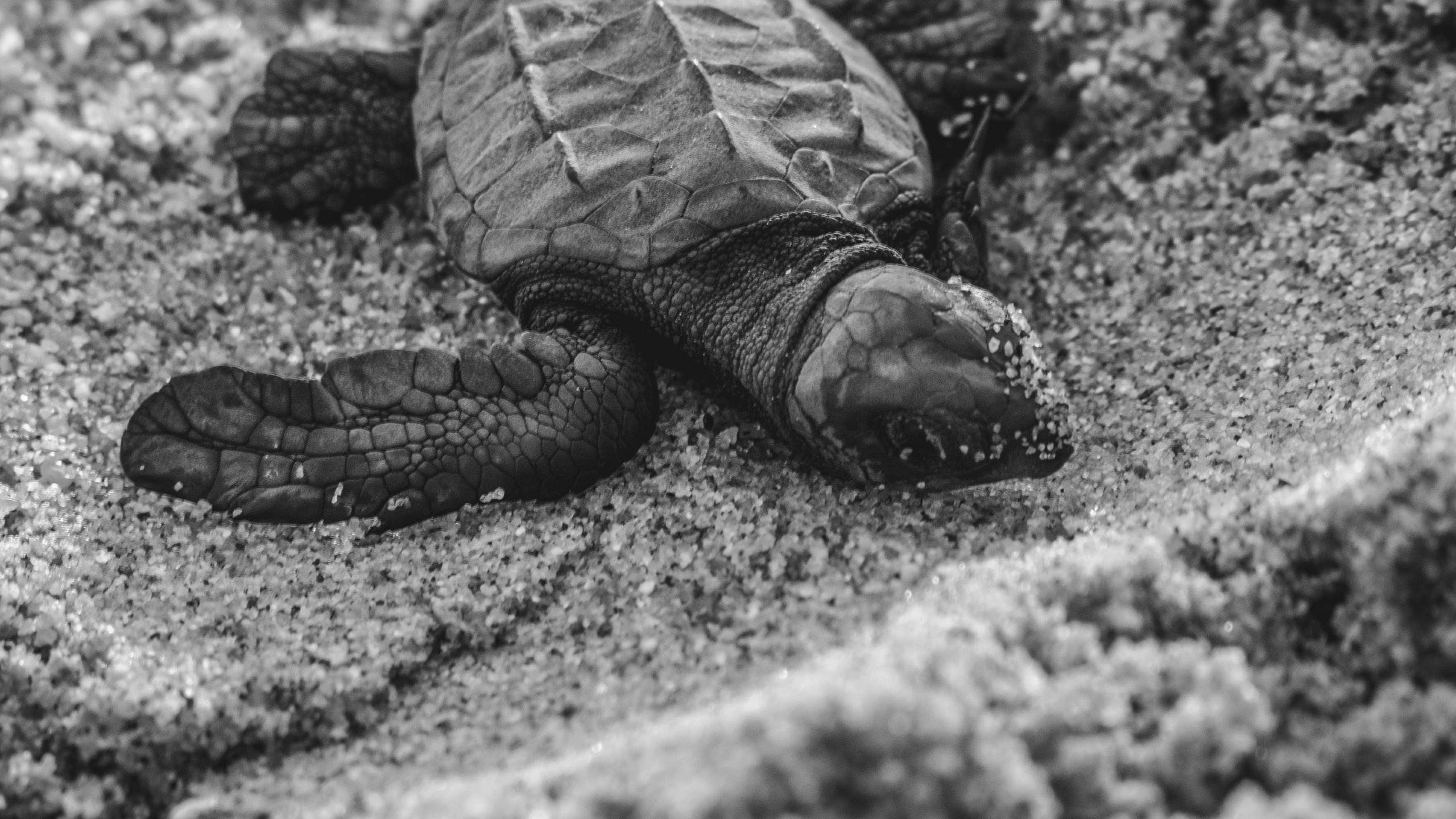Turtle eggs were once important sources of protein for locals in Terengganu. Today, they have become delicacies that are dangerously threatening the species’ survival.
Locals had been turning to turtle eggs as a source of food – other than fish – at a time when chicken eggs were hard to come by before Malaysia gained independence. But even as supply increases in the east coast state, Malaysians living there can’t seem to stop poaching, selling, and eating the “rich, savory, irresistible” turtle eggs that are vital for the majestic creatures to maintain their population.
“My brother in Terengganu would call me and let me know that there are turtle eggs for sale, and normally I would buy them because I have loved them since I was young,” a turtle egg fan, who declined to be named for fear of backlash, told Coconuts recently. But if the government chooses to ban their sale and consumption, she will gladly oblige, she said.
For years, Malaysia has been the home for thousands of female turtles finding a place to nest, with Terengganu being one of the major sites for green turtles in Southeast Asia. But the turtles have been disappearing lately, as locals continue to chomp on their eggs or cause the death of turtles. In this year alone, 20 turtles have died in Terengganu waters, fewer than the 55 deaths reported last year and 78 in the year before, according to the local fisheries department. The turtles died after getting caught in fishing nets or being hit by a boat propeller, Director Ruzaidi Mamat told reporters last week.
“There was one recent case of the brutal killing of a female turtle at Pulau Kapas in Marang by perpetrators who wanted to steal her eggs,” he said.
The department never disclosed the number of eggs that are being removed from Terengganu shores even though it hands out licenses to egg collectors, some of whom may have sold the eggs on the side. But Ruzaidi knows that only one out of 1,000 hatchlings get to grow into adult turtles while the rest become prey.
The famous leatherback turtles have not landed on Malaysian shores since 2017, according to the World Wide Fund for Nature, or WWF, while the Hawksbill, Green and Olive Ridley turtles have become endangered.

The turtle egg trade
Despite local laws, the turtle egg trade continues and has moved from the markets to the internet ever since the COVID-19 pandemic landed in Malaysia. Turtle eggs usually cost between RM6 (US$1.40) and RM9 per piece depending on supply.
Members of the Kapas Conservation Society are already concerned about the poaching of eggs on Pulau Perhentian, nearly 100 kilometers away from Pulau Kapas, where a female turtle was reportedly killed for her eggs. Both have been gazetted as marine parks, where poaching turtle eggs is illegal. But people do it anyway and some have gotten away with it.
“We are deeply concerned [about] sea turtle eggs that were illegally collected by poachers here in Taman Laut Pulau Kapas will share a similar fate of being sold through online methods when markets are closed because of MCO,” it said in a statement, referring to the COVID-19 lockdown’s acronym for Movement Control Order. The society told Coconuts recently that it was seeing sellers touting on WhatsApp and Facebook. Online marketplace Shopee recently removed turtle egg listings after a Twitter uproar.
Current local laws ban the sale and consumption of turtle eggs in Sabah and Sarawak while other parts of Malaysia including Terengganu are regulated via trade concessions. The law does ban the sale of leatherback turtle eggs in Terengganu, but what good is that since those turtles have long disappeared. Meanwhile, there are no regulations in Selangor and Perlis, where turtle nestings are rare.
What’s odd is that the authorities also buy turtle eggs from licensed egg collectors, according to WWF. Those licensed turtle egg collectors are supposed to sell the eggs to the Fisheries Department but some have been suspected of selling them on the side – something the turtle conservation community has called attention to. The government is expected to amend the Turtle Enactment 1951 (Amendment 1987) in November to extend the ban on the sale of all types of turtle eggs in Terengganu.
Attempts to reach Malaysia’s Fisheries Department since June have been unsuccessful.

Saving the turtles
To date, nobody really knows the total number of turtles that come to Malaysian waters and shores despite being the go-to for turtle nestings. Mohd Uzair Rusli, who leads the field research laboratory at Universiti Malaysia Terengganu, or UMT, said that the number of turtle nestings only shows half the story, since that only points to the number of female turtles that arrive here. There are no publicly available numbers on the male turtle population. Nevertheless, Uzair thinks that there might be more females than males out there due to warmer temperatures. Nest temperatures cooler than 28°C tend to produce male hatchlings, while those higher than 31°C produce female ones, he said.
“There is a need to release more hatchlings into the wild in order to increase the chances of their survival until maturity,” he said, noting that “36% of hatchlings get predated on the bay of Terengganu.”
But how can we release more hatchlings when many of the eggs can’t even escape being eaten by humans? Uzair believes that eating turtle eggs is worsening the situation for these creatures. His colleague Jarina Mohd Jani, who is a science and marine environment academic, echoed his sentiment. She believes that it is time to let go of the turtle egg-eating tradition, which initially began out of necessity.
“Tradition should be alive, and to be alive it must stay relevant and not be static,” she said, noting that at least 80% of turtle eggs get protected in Terengganu, while the rest are practically free-for-all.
Correction: Universiti Malaysia Terengganu academic Mohd Uzair Rusli said that there might be more female than male turtles out there due to warmer temperatures.
Other stories:
Man vs Wild: Orang Asli man pounced, clawed by tiger endures 15 hours of pain
‘Power first, Rakyat never’: Funniest tweets by Malaysians reacting to ‘collapsed’ government


